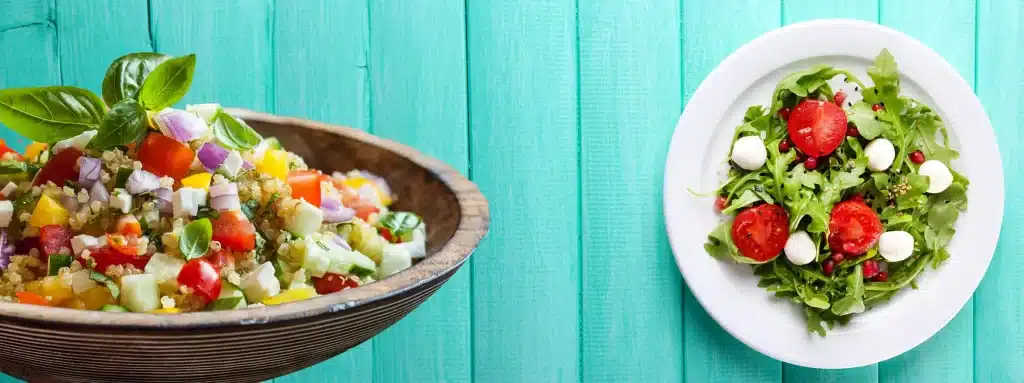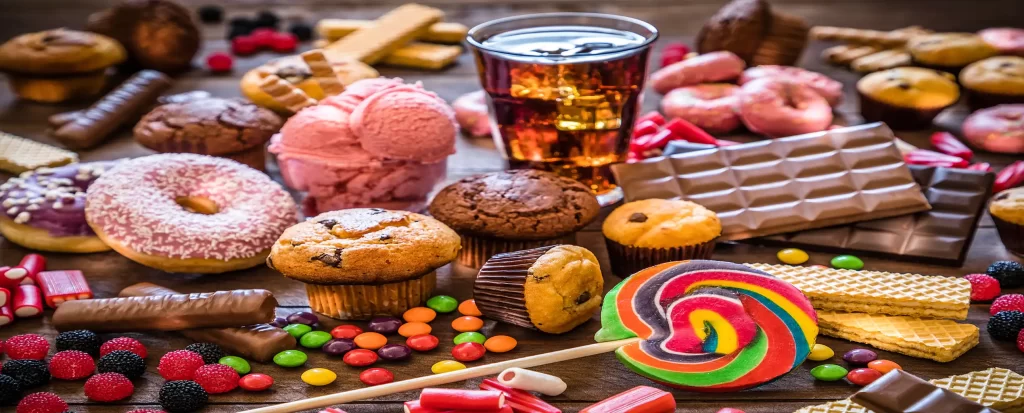re you tired of complex diets and rigorous exercise routines that never seem to work? Welcome to the world of effortless weight loss—a simpler, science-backed approach that integrates seamlessly into your daily life. In “Unleash Effortless Weight Loss: 10 Science-Backed Strategies That Really Work,” we’ll explore proven methods that don’t require you to overhaul your lifestyle. Whether you’re looking to shed a few pounds or make significant changes without the stress, these strategies are designed to make weight loss achievable and sustainable. Get ready to transform your approach to losing weight with minimal effort and maximum results.
1 – Avoid Distractions While Eating
In our fast-paced world, it’s common to multitask during meals, often eating while watching TV or scrolling through our phones. However, this habit can significantly hinder your effortless weight loss goals. Studies have shown that being distracted by electronic devices during meals can increase your food intake by up to 20%. This is because distractions prevent us from being mindful of what and how much we are eating.

When you eat without focusing on your meal, you’re less likely to notice the body’s signals of fullness, leading you to consume more than necessary. This not only affects your digestion but also makes it much harder to control portions, a key element in weight management. Furthermore, distracted eating often means you’re not fully enjoying your food, which can lead to dissatisfaction and the urge to snack later.
To embrace effortless weight loss, make a conscious effort to be present during your meals. Turn off the TV, put away your phone, and give your full attention to your food. This will help you enjoy your meals more thoroughly and recognize when you are full, reducing the likelihood of overeating. By practicing mindful eating, you’ll find it easier to control your weight and enjoy your meals more fully.
By making these small changes, you can significantly impact your eating habits and support your weight loss goals without feeling deprived or overwhelmed.
2 – Change Your Plate Size
One intriguing yet simple strategy for effortless weight loss is to change the type of plates you use for your meals. Switching from concave to flat plates can have a significant psychological impact on how much food you consume, playing a crucial role in portion control.

Concave plates, with their bowl-like shape, tend to make portions appear smaller than they actually are, prompting you to serve yourself more to achieve visual satisfaction. On the other hand, flat plates present food in a way that more accurately represents portion size, making a standard serving appear more substantial. This optical illusion can help you feel more satisfied with less food, reducing overall calorie intake without a sense of deprivation.
By simply changing your plate design, you can trick your brain into being content with smaller portions while still enjoying a full plate of food. This method is not only effective but also an effortless way to control your eating habits and support your weight loss journey.
3 – Optimize Plate Portions
To facilitate effortless weight loss and encourage a balanced diet, using smaller, sectioned plates is a highly effective strategy. This approach not only aids in controlling portion sizes but also ensures a variety of nutrients in every meal.
Sectioned plates naturally limit the amount of food you can put on them, which helps to avoid overeating. By dividing the plate into sections—for example, one for proteins, one for vegetables, and another for starches—you can create a well-balanced meal without having to think too much about proportions.
Moreover, dedicating a section of your plate to low-calorie, high-nutrient foods like salads and pickles can increase your intake of vitamins and minerals while keeping calorie counts down. This visual and physical boundary on your plate helps you to subconsciously balance your meals, which is crucial for maintaining a healthy diet and supporting weight loss.
Using these plates also makes meal preparation simpler and eating more enjoyable. You have everything in the right proportion, visually appealing, and easy to manage. It’s a practical way to ensure you’re eating a variety of foods, thus getting a range of nutrients without excess calories.
By incorporating these smart dining tools into your daily routine, you can enjoy satisfying, nutritious meals that support your weight loss efforts without the need to constantly measure or doubt your portion sizes. This is an effortless step towards a healthier lifestyle.
4 – Avoid Sweet Triggers
Integrating effortless weight loss into your lifestyle can be as simple as adjusting your snacking habits, particularly when it comes to sweets. Consuming sweets and certain fruits before meals can trigger an increase in serotonin—a hormone that, while generally beneficial for mood stabilization, can inadvertently heighten your hunger. This can lead to overeating once you finally sit down for a meal.

When serotonin levels rise after consuming sweets, your body’s craving for carbohydrates intensifies, leading to increased appetite. This is why you might find yourself eating more than usual during meals if you’ve snacked on chocolates or sweets beforehand. By avoiding these sweet triggers, especially right before meals, you help maintain stable serotonin levels, which can aid in managing your appetite more effectively.
Instead of reaching for sugary snacks, opt for healthier alternatives like nuts or seeds. These not only provide essential nutrients but also help stabilize hunger without spiking your blood sugar levels. Keeping sweet treats out of your pre-meal routine is a straightforward strategy that supports portion control and reduces the risk of consuming extra calories.
By focusing on what you eat before meals, you can control your hunger more effectively, making your journey to weight loss feel more effortless. This approach not only helps in reducing caloric intake but also stabilizes your energy levels throughout the day.
5 – Incorporate Healthy Fats
In the pursuit of effortless weight loss, it’s crucial not to eliminate fats entirely from your diet. Healthy fats play a vital role in achieving and maintaining satiety, which can help prevent overeating. Including sources of good fats in your meals is essential for feeling fuller longer, thus supporting your weight loss goals.
Healthy fats, such as those found in olive oil, avocados, nuts, and seeds, provide a slow and steady source of energy. Unlike saturated fats, these fats offer cardiovascular benefits and help absorb vitamins. Olive oil, in particular, is renowned for its heart-healthy monounsaturated fats and can be an excellent choice for dressing salads, cooking, or even drizzling over cooked vegetables.
By incorporating a moderate amount of healthy fats into your diet, you not only enhance the flavor of your meals but also modulate your appetite. This dietary strategy ensures that your meals are more satisfying, reducing the urge to snack frequently or overindulge in unhealthy options.
Remember, the key to using fats to your advantage in weight loss is moderation. Balancing these fats with a well-rounded diet rich in fruits, vegetables, and proteins can lead to more effective and sustainable weight management. By valuing quality over quantity in your fat intake, you set the stage for a healthier lifestyle that supports effortless weight loss.
6 – Manage Hunger Proactively
One effective strategy for achieving effortless weight loss is to manage hunger proactively by eating small, frequent meals and snacks every two to three hours. This approach helps maintain a stable blood sugar level, which can prevent the intense hunger that often leads to overeating.
Incorporating healthy snacks such as nuts, fruits, yogurt, or small sandwiches into your daily routine can keep you feeling satisfied throughout the day. These snacks provide essential nutrients and a steady supply of energy, making it easier to control your appetite and portion sizes at mealtime.
By planning your meals and snacks to occur at regular intervals, you not only avoid the pitfalls of becoming overly hungry but also promote a more balanced metabolism. This eating pattern can help reduce cravings and the temptation to indulge in less healthy options, supporting your weight loss goals more effectively.
Adopting a proactive approach to hunger management ensures that you’re never too far from your next nutritious meal or snack, keeping you on track for effortless weight loss and overall well-being. This method is not only practical but also encourages more mindful eating habits and better dietary choices.
7 – Chew Thoroughly
Chewing thoroughly is a simple yet effective tactic to enhance effortless weight loss and improve overall health. The process of chewing, often overlooked in our fast-paced lifestyle, is crucial for kick-starting digestion and ensuring nutrients are absorbed optimally.
When you chew your food well, you break it down into smaller, more manageable pieces. This not only makes it easier for your digestive enzymes to work effectively but also slows down your eating pace. A slower eating pace gives your stomach enough time to signal to your brain that you’re full, which can prevent overeating.
Moreover, properly chewed food enhances nutrient absorption by exposing more surface area to digestive enzymes. This efficiency in digestion means that your body can utilize the nutrients more effectively and is less likely to store excess food as fat.
By focusing on chewing each bite thoroughly, you also enhance your meal’s enjoyment, which can lead to greater satisfaction with smaller portions. This mindful eating practice supports your body’s natural digestion and absorption processes, making weight management feel more natural and less like a chore.
Emphasizing good chewing habits can have a profound impact on your digestion, satiety, and overall approach to eating, aligning perfectly with the principles of effortless weight loss.
8 – Choose Dining Companions Wisely
The company we keep at meal times can significantly influence our eating habits, playing a subtle yet powerful role in our effortless weight loss journey. Surrounding yourself with friends or family members who prioritize healthy eating can encourage you to make better food choices and adopt similar habits.

Research shows that we often mirror the eating patterns and behaviors of those around us. If your dining companions opt for salads, fresh fruits, and lean proteins, you’re more likely to choose these healthy options as well. On the other hand, dining with those who consistently choose high-calorie, less nutritious foods can tempt you to deviate from your weight loss goals.
The benefits of choosing health-conscious companions extend beyond just the meals you share. These individuals can provide motivation, support, and accountability, all of which are invaluable when trying to maintain a healthy lifestyle. Furthermore, sharing meals with others who are mindful about nutrition and portion sizes can enhance your overall dining experience, making healthy eating more enjoyable and sustainable.
By consciously choosing to dine with people who reflect the eating habits you aspire to, you create a supportive environment that naturally fosters healthier choices, enhancing your efforts towards effortless weight loss. This strategic approach not only benefits your physical health but also contributes to a positive social experience around food.
9 – Time Your Last Meal
Timing your last meal of the day can significantly contribute to effortless weight loss and overall health. It is widely recommended to finish eating at least three hours before bedtime to allow your body adequate time for digestion and hormone regulation.
Eating too close to bedtime can disrupt your body’s natural processes, including the release of hormones like insulin and human growth hormone. These hormones play vital roles in metabolism and repair during sleep. An early dinner helps ensure that insulin levels decrease and growth hormone levels increase, facilitating fat burning and muscle repair while you sleep.
Moreover, allowing a few hours between dinner and bedtime can improve your sleep quality. Digestion requires energy and can be an active process that might interfere with your ability to fall asleep or stay asleep if you eat late. Poor sleep, in turn, can lead to weight gain, as it can affect your appetite hormones, leading to increased hunger and potential overeating the next day.
By planning your meals to ensure that your dinner is consumed well before you go to bed, you can enhance your body’s natural nightly rhythms, supporting better digestion, more effective hormone function, and ultimately, effortless weight loss. This simple adjustment to your eating schedule can have profound benefits for your health and well-being.
10 – Be Mindful of What’s on the Table
Adopting a mindful approach to how you serve meals can significantly enhance your effortless weight loss efforts. One effective strategy is to avoid placing main dishes in the center of the table. Instead, serving individual portions directly on each plate can help manage portion sizes and reduce the likelihood of unintended overeating.

When main dishes are served family-style in the center of the table, it’s easy to keep reaching for extra servings without fully realizing how much you’ve already consumed. This can lead to consuming more calories than intended, as the visual cues of an ever-present supply of food can tempt you to eat beyond your actual hunger.
By plating meals in the kitchen and bringing only individual portions to the dining table, you can better control the amount of food consumed during a meal. This arrangement not only helps with portion control but also encourages diners to focus on their own plates, enhancing mindfulness about what and how much they are eating.
This method of meal presentation supports a more mindful eating experience, where each bite can be savored and appreciated. It aligns perfectly with the principles of effortless weight loss, where the goal is to enjoy satisfying, healthful meals without the risk of overindulgence. By being mindful of what’s on the table and how it’s presented, you can enjoy a satisfying dining experience that supports your health goals.
Conclusion
Embracing effortless weight loss is about more than just what you eat; it’s about how you approach eating and the lifestyle choices you make. By adopting a series of mindful practices, you can significantly enhance your weight management efforts.
Leverage Aromatherapy: Utilize the power of essential oils like peppermint and grapefruit to curb cravings and manage appetite through the senses, providing a pleasant, non-invasive aid to your weight loss journey.
Hydration and Weight Loss: Always keep hydrated as water is crucial not only for metabolic health but also for filling you up and reducing the likelihood of mistaking thirst for hunger.
Mindful Eating Practices: Engage fully with your eating experience. By eating slowly and without distraction, you can enhance digestion and satisfaction, which helps in recognizing when you’re truly full.
Utilize Food Diaries: Keep a food diary to track your intake and recognize patterns that lead to overeating. This can be a powerful tool for accountability and for making conscious changes to your diet.
Embrace a Positive Food Philosophy: Shift your focus from restrictive dieting to nurturing your body. Emphasize nourishing rather than depriving yourself, which can make weight loss a more positive and sustainable experience.
By incorporating these strategies, you align yourself with a holistic approach to eating and living that not only promotes weight loss but also improves overall health and well-being. This comprehensive method ensures that weight loss is not just about shedding pounds but about gaining a healthier, more balanced lifestyle.
Ressources
Books:
- “Mindless Eating: Why We Eat More Than We Think” by Brian Wansink – Explores how external factors influence our eating habits.
- “The Flavor Point Diet” by David L. Katz – Offers insights on structuring meals to satisfy hunger.
- “The Omnivore’s Dilemma” by Michael Pollan – A comprehensive look at modern eating habits.
Websites:
- Nutrition.gov – Provides educational materials on food and nutrition.
- MyFitnessPal – A comprehensive tool for tracking diet and exercise.
- Mindful Eating Institute – Offers resources and workshops on mindful eating.
Mobile Apps:
- Headspace – Offers meditation sessions, including guided practices for mindful eating.
- Waterlogged – An app for tracking your daily water intake.
Research Articles:
- Search for articles on PubMed or Google Scholar related to the effects of aromatherapy on appetite, benefits of mindful eating, and meal timing for weight loss.


0 thoughts on “Unlock Effortless Weight Loss: 10 Science-Backed Strategies That Really Work”